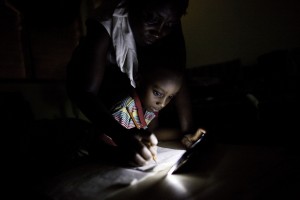Your interest in starting an African venture, be it a business or project, is not unique these days. There are many players moving their operations or expanding into Africa. The chief reason is the expanding economies of the region. The International Monetary Fund, the leader in international economic indicators and projections, predicts the economy of Sub-Saharan Africa will increase by 5.5% in 2012. This is more rapid
than all regions of the world except for the developing countries of Asia. Rising star Angola is on pace for for double-digit growth.
Even though many businesses and entrepreneurs have begun to see
the potential in Africa, the continent is still early in her economic expansion.
Unique Solutions – A Must for African Ventures
Africa is not the place to repeat what you have done in the US, or elsewhere in the world for that matter. You cannot expect great return or impact by simply exporting an existing product or program to Africa.
Samsung Example
Samsung, the international electronics giant, has brand recognition and a huge array of successful products, yet the firm realizes that one size does not fit all when it comes to marketing to Africa. They have targeted Africa with their unique Built for Africa line of products. These products are the result of extensive research and development which have produced “technology innovations specific to the African consumers’ unique needs, and the unique resources and conditions of the continent.”
The researchers recognized that their is a growing middle class in Africa that hungers for modern conveniences. In response Samsung has developed the Ecobubble SCOUT which is a deep foam washing machine that is 70% energy efficient – saving up to 30% water use.
Many of the modern cities in Africa experience periodic power outages. Taking this factor into consideration, Samsung has come out with the Duracool Refrigerator line which have ‘cool packs’ allowing them to say cool when the power is out.
Despite the growing middle class, Africa still has massive rural populations living at our near international poverty levels. Samsung still sees a market among them, and offers solar-powered netbooks and televisions. This year they have come out with the inexpensive, entry-level Galaxy smartphone that allows users to benefit from the plethora of truly helpful apps that Africa entrepreneurs are developing.
Philips Lighting Africa Example
Philips Lighting Africa has also set out to offer a range of products suitable to the unique African environment. In the rural reaches of much of the continent electrical lines are hundreds of miles away and local electrical generation is extremely expensive and requires regular maintenance.
Philips has come out with LED based solar powered lighting solutions that give hours of light to allow students to study well into night in their homes (photo above). They also offer off-grid lighting from street lights and high powered, security spotlights for use in areas where they have never been available in the past. They need next to no maintenance and are sustainable due to being run on 100% on solar energy.
These large firms recognized they must offer unique solutions for the Africa environment if they hope to replicate the huge profits they enjoy in the rest of the world.
Entrepreneurial Opportunity In Africa
There is still vast opportunity for many entrepreneurs, including expatriates, to provide answers to Africa’s challenges. But they must do just that – meet Africa’s challenges. They must be products and projects that fit the continent’s unique situation. As Nick Kelso of Philips Africa Lighting says, “It is also important to realize that Africa is not one entity. Peoples and cultures differ widely and this all needs to be taken into account when designing new product solutions.” One size does not fit all of Africa.



